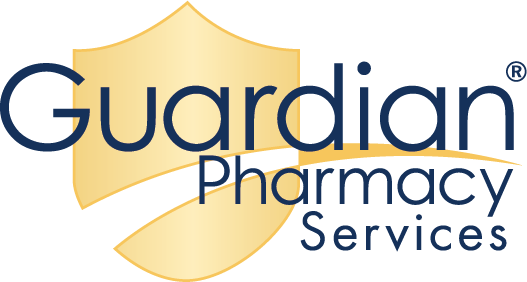Navigating Pharmacy Services Compliance in LTC: Insights from Erin Marriott, RPh, BCGP
Introduction
In long-term care (LTC) communities, managing pharmaceutical services is critical to ensuring the well-being of residents. With complex medication regimens being the new norm, achieving compliance with CMS’s guidance has become challenging for many nursing home operators. Today, we have Erin Marriott, RPh, BCGP, Director of Clinical and Regulatory Support for Guardian Pharmacy Services, shedding light on how operators can remain compliant with F755 of the CMS State Operations Manual Appendix PP.
Q. Erin, can you explain what F755 requires of LTC communities in terms of pharmacy services?
A. Certainly. F755 guides LTC communities on three major areas when it comes to providing comprehensive pharmaceutical services: the provision of routine and emergency drugs, procedures that assure the timely acquisition, proper administration, and maintenance of accurate drug records, and the collaboration of a licensed pharmacist who oversees these procedures and provides consultative services on all aspects of pharmacy services in the community.
Q. The F755 guidance is quite detailed. Could you explain the purpose behind the guidance and how it impacts resident care?
A. The ultimate aim of F755 is the safe and accurate use of medications for every resident. Managing the complex medication regimens common to LTC is challenging and necessitates employing a wide range of services and systems. But when done well, the impact on resident care is profound. When medications are used appropriately, we can enhance the quality of life for our residents and improve therapeutic outcomes. F755 guidance exists to support the LTC community with a pharmacy partnership that understands their needs as well as the intricacies of medication therapy in older adults.
Q. What are the signs that a community is compliant with this regulation?
A. Because this regulation looks at several different aspects of medication management within the LTC community, there are many expectations that must be met. Employing a consultant pharmacist to oversee the provision of pharmacy services is the first key to compliance. Surveyors will be focused on whether residents have received their ordered medications in a timely matter, including reviewing the general ordering process as well as the procedures for emergency access to needed medications. Accurate medication administration, proper drug storage and handling, a reliable system for tracking controlled substances, and the adoption of policies and procedures to ensure complete and accurate documentation at each step in the medication management workflow will also be reviewed closely.
Q. What are some common causes of non-compliance with F755?
A. The majority of citations under F755 surround the proper labeling and storage of medications. Some examples would be:
-
- All medications in the med cart, including over-the-counter (OTC) drugs, inhalers, eye drops, and creams, are labeled with all necessary information including any ‘date opened’ or ‘use by’ notations
- Medications with shortened expiration dates are removed from the med cart
- The medication refrigerator is at the appropriate temperature, log sheets are completed, and any out of range temperatures have been addressed/corrected
- There is proper separation of medications by resident and route of administration on the med cart
Another common reason a community may be cited for non-compliance under F755 is the failure to administer medications according to the physician’s order or the manufacturer’s instructions. This can be a serious citation if it is due to failure to acquire the medication in a timely manner or not maintaining an adequate supply on-hand, therefore missing the prescribed administration time. This type of non-compliance can have severe consequences for both the community and the resident. For example, failure to assure that pain medications are available to a resident with severe, unrelieved pain can result in a Level 4 Immediate Jeopardy (IJ) tag.
Q. Can you elaborate on the role of the consultant pharmacist to prevent non-compliance?
A. Certainly. The consultant pharmacist plays a pivotal role not only in ensuring compliance with F755 but also with related regulations such as F756-758 and F881, which govern the proper use of drugs, including psychotropic medications and antibiotics. They act as the bridge between the community’s clinical needs and the pharmacy’s services, to ensure that residents are receiving optimal medication therapy and that appropriate procedures are being followed. They oversee medication availability, conduct periodic staff training, manage medication errors, and ensure proper medication storage practices.
Specific to F755, they are integral to helping the LTC community develop policies and procedures related to pharmacy services, addressing resident care concerns, and setting up systems for maintaining drug records and reconciliation. In the context of drug diversion, the consultant pharmacist’s expertise is crucial in detecting discrepancies and potential abuse or misuse of controlled substances. Although they may not carry out reconciliation themselves, they are responsible for assessing and enhancing the community’s ability to maintain accurate records and perform controlled substance reconciliation in line with their policy.
Q. What strategies can communities employ to ensure compliance?
A. While community leadership teams should regularly self-assess their compliance with F755 by reviewing their policies, evaluating their processes, assessing staff competency, and conducting regular internal audits, leveraging the partnership with their consultant pharmacist and LTC pharmacy for additional audits, consultations on clinical as well as procedural protocols, staff training specific to pharmacy policies and medication handling and storage, and survey support are an integral part of maintaining compliance.
Q. Beyond regulatory compliance, can you elaborate on the pharmacist’s role in ensuring safe and effective medication use for residents?
A. Absolutely. The role of the pharmacist in the community extends beyond consulting for compliance; it’s about using their clinical expertise to optimize medication therapy and improve resident outcomes as a member of the community’s interdisciplinary care team. This can range from something simple like fine-tuning the timing of medication administration to reduce the potential for adverse drug reactions and enhance treatment effectiveness to the extremely complex task of evaluating a lengthy medication regimen for appropriateness and deprescribing potentially unnecessary medications.
The pharmacist is key to preventing drug-drug and drug-food interactions, which is critical for residents receiving multiple medications, as most of our LTC residents are. They are focused on identifying, reporting, and correcting medication errors, a process that not only addresses immediate issues but also informs better practices. Pharmacists also ensure that proper techniques are used for administering specific medications, like injections or inhalation therapies, to maximize benefit and reduce risk. They are a resource for community staff, residents, and families for crucial drug information, ensuring better understanding and compliance.
Finally, the reconciliation of medication orders is an area where pharmacists have a significant impact, verifying that new orders are correct and that transitions of care do not result in discrepancies or omissions. This comprehensive approach to medication administration is essential for resident health and regulatory compliance.
Q. How does the LTC pharmacy partner support communities in maintaining compliance?
A. I hope that after considering the multi-faceted role of the pharmacist, whether their role is on the dispensing side or if they are the consultant pharmacist coming into the community, that it is evident in LTC, your pharmacy partner is invaluable. They go beyond just dispensing medications; the pharmacist reviews for drug interactions and ensures accurate order sets, reconciling medication lists from various sources and ensuring the resident is on optimal medication therapy. Pharmacy staff are quick to identify and address issues, such as clarifying incomplete orders or navigating insurance billing challenges to prevent delays in medication delivery. Effective communication between the pharmacy partner, the consultant pharmacist, and the community is fundamental to not only adhere to F755 but also to guarantee safe and effective medication management in the community.
Conclusion
Maintaining compliance with CMS’s F755 is no small feat for LTC communities. However, with diligent practices, robust policies, and effective collaboration with consultant pharmacists and the pharmacy partner, communities can ensure the best pharmaceutical care for their residents. Thank you, Erin, for your insights and for highlighting the essential role of consultant pharmacists in this process.
CMS SOM Appendix PP Guidance on F755 can be found at CMS.gov

Erin Marriott is a board-certified geriatric pharmacist and a seasoned LTC clinical consultant pharmacist. She serves as the Director of Clinical and Regulatory Support for Guardian Pharmacy Services and can be reached at clinicalsupport@guardianpharmacy.net








